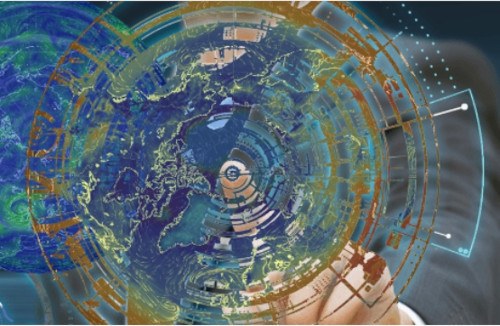A comprehensive overview of the various and important participants in Arctic science, including data networks, educational institutions, organizations and institutions, projects, and networks.

The Arctic is a region of environmental, economic, and social opportunities and threats. The region holds a paramount significance in the Earth's ecosystem, serving as a critical indicator of changes in global environmental conditions and climate. Its changing landscape, primarily driven by climate change, poses a shared concern for the international community. The repercussions of these changes extend far beyond the Arctic Circle, impacting not only its ice, seas, vegetation, animals, Arctic inhabitants, and its indigenous populations but also exerting a ripple effect on global weather patterns and sea levels. At the same time, the Arctic region is rich in natural resources, expected to hold as much as 30% of the world's unused resources. Changing climate conditions are not only increasing the economic feasibility and potential of utilizing these resources but also increasing the viability of trans-Arctic shipping routes utilized in a Global context. All the above are consequently rapidly increasing the Geopolitical interest.

Importance of Science and Arctic Data
In the face of these challenges, the role of science, the interpretation of knowledge, and the importance of data as a basis for responsible governance cannot be overstated. Scientific research, continuous observations, and data collection in the Arctic are crucial for understanding the mechanisms driving environmental shifts and for formulating effective strategies for mitigation and adaptation. Scientific data serves as the backbone of informed decision-making, enabling policymakers, researchers, and stakeholders to understand the intricacies of Arctic dynamics and develop evidence-based solutions.
Various organizations, institutions, networks, projects, and affiliations are addressing the Arctic challenges comprehensively. These entities span a spectrum of focuses, including environmental conservation, data collection and analysis, community resilience, social and economic science, governance, and more. Their collective efforts underscore the interdisciplinary nature of Arctic studies, recognizing the interconnectedness of environmental, social, and economic dimensions.
Organizations, Institutions, Projects and Networks
Among the pivotal components of Arctic research infrastructure are data systems, organizations, and databases dedicated to collating and disseminating relevant information. The ARCTIC DATA section provides an overview of and access to the main Arctic initiatives.
EDUCATIONAL INSTITUTIONS play a vital role in acquiring and interpreting the accumulative Arctic knowledge in a local, regional, and Global context and supporting the well-being of Arctic societies. They are the leaders in cultivating the next generation of Arctic researchers and practitioners, nurturing and deepening understanding of Arctic complexities, and fostering innovative solutions and entrepreneurship.
Numerous ORGANIZATIONS AND INSTITUTIONS are actively engaged in addressing Arctic issues from various perspectives. Some concentrate on environmental conservation, striving to understand and preserve the fragile Arctic ecosystems and biodiversity. Others focus on data collection and analysis, harnessing the power of scientific inquiry to unravel the intricacies of Arctic developments and change. Further, local and international organizations prioritize the development and well-being of Arctic communities and societies, working to safeguard indigenous rights, promote sustainable development, and enhance community resilience in the face of environmental, economic, and geopolitical challenges.
In addition to organizational and institutional efforts, numerous PROJECTS AND NETWORKS are dedicated to Arctic research and collaboration. These initiatives bring together diverse expertise and resources, fostering interdisciplinary collaborations and amplifying the impact of collective endeavors. By fostering partnerships and leveraging scientific data, these projects aim to generate actionable insights and innovative solutions to address multifaceted challenges.
In conclusion, the Arctic stands as a crucible of environmental transformation, necessitating concerted efforts from the global community to understand and mitigate its impacts. Science efforts and data interpretation play indispensable roles in this endeavor, serving as catalysts for informed decision-making and collaborative action. By harnessing the collective expertise and resources of diverse stakeholders, we can strive towards a sustainable future for the Arctic and the planet as a whole.
Should your activity not be listed in our overview, please send your information to and we will be happy and honored to include the relevant information.
